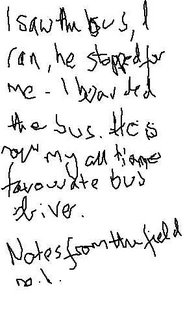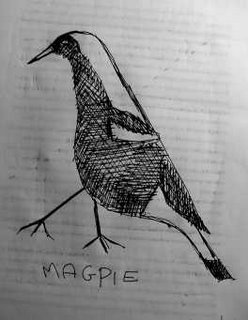EXPRESSIVISM
To say that the bus is ‘on time’ or ‘late’ is not to state a fact about the tardiness of the bus, but rather to express a personal attitude towards the specific time that the bus gets to you. There is, according to expressivism, no fact of the matter as to the lateness of the bus.
A potential problem for the expressivist is that many people believe that a bus can be labelled according to the time it was supposed to arrive. Hence ‘look out, Beatrice, here comes the 9.10’ and ‘the 5.35 never even bloody turned up!’ are phrases that can be heard at many a British bus stop. It would follow from this that a bus could truly be late or early depending on when it arrived relative to the time it was supposed to arrive. So if the 9.10 arrives at 9.15, it would, as a matter of fact, be late.
The expressivist still has a few tricks up her sleeve though. She would argue that to attribute specific times to a bus is to mistake the common bus for an intercity train, or perhaps an aeroplane. This is an error that should be avioded, cliams the expressivist, because a train is a lot longer than a bus, and aeroplanes have big wings. Instead, the expressivist argues, there are just a bunch of times, and a bunch of busses, and no particular correlation between the two. It turns out there is plenty of evidence to support this claim. SO, to describe a particular bus as the 9.10 to Piccadilly is a category mistake.
If a commuter turns up to the bus stop at 9.15 and the 43 arrives a few moments later, they would be quite rational (according to our expressivist) to say that the bus was exactly on time. However, the old lady who has been waiting since 9.00 would also be rational to say, of the very same bus, that it was late. They are simply expressing attitudes towards the bus that are neither true nor false.
A recent survey shows that many bus drivers are expressivists, and subsequently tend to ignore passengers who complain that the bus is late, since they will always arrive at the stop at the same time as the bus and describe it accordingly as exactly on time.
Read more about expressivism
here.

 43
43







